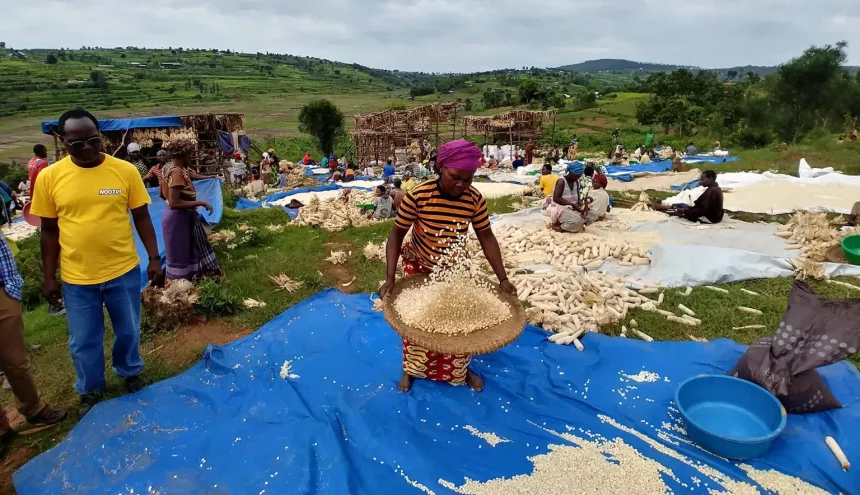After 8 years of successful operations in Rwanda, Africa Improved Food (AIF) has set its sights on expanding its impact across the African continent, with a mission to nourish an estimated 10 million people, prioritising children who are among the most vulnerable members of every society.
Since its inception in December 2016, AIF has been instrumental in maximising the potential of people in Rwanda through improved nutrition, offering affordable, high-quality, locally sourced foods.
In Rwanda, the company specialises in fortified blended foods, impacting 1.5 million people daily and making significant contributions to children’s nutrition with the production of cereal-based products such as Shisha Kibondo and Nootri.
The growth trajectory sees the Rwanda-based food processing company expanding its footprint into Ethiopia in the near future, with plans to establish five more factories in Nigeria and Zambia within the next five years.
With Africa projected to be the world’s fastest-growing population by 2050, and a significant portion currently undernourished, particularly children under five years, AIF’s mission gains critical importance.
Severe and chronic malnutrition in early childhood can lead to irreversible mental and physical damage, including stunted growth among other health risks.
AIF therefore aims to impact over 10 million lives daily by the end of 2028, scaling the reach of safe, nutritious, and affordable food across the continent.
Supported by the government of Rwanda and key partners such as International Finance Corporation (IFC) and Entrepreneural Development Bank (FMO), the company has invested over $65 million in cutting-edge technologies, and implementing innovative solutions to enhance nutrition.
The company’s commitment to responsible sourcing includes empowering local farmers and cooperatives, with a focus on women’s participation reaching 45 percent. AIF is dedicated to promoting consumption of aflatoxin-free maize and other materials that meet stringent quality standards for safe and nutritious foods.
Notably, AIF’s investment in technology has led to groundbreaking initiatives like the Cob Sourcing Model, which has helped bring down of aflatoxin rejections levels from 90 percent to less than 5 percent in just three years.
Moreover, research by the Clinton Health Initiative and the University of Chicago highlights AIF’s significant contribution to reducing stunting, anemia, and iron deficiency rates in Rwanda.
Recognising the importance of a triple bottom line approach, AIF integrates natural, social, and human capital considerations into its business strategy and decision-making processes. By quantifying the value of environmental and social impacts, the company communicates its sustainability performance effectively to stakeholders.
With a focus on building a resilient business model, AIF’s expansion signifies its commitment to combatting malnutrition on a Pan-African basis, paving the way for a healthier, more prosperous future for the continent.



